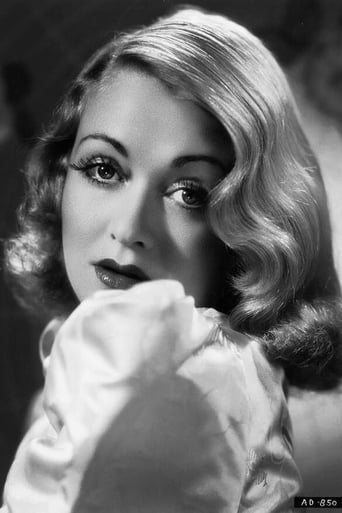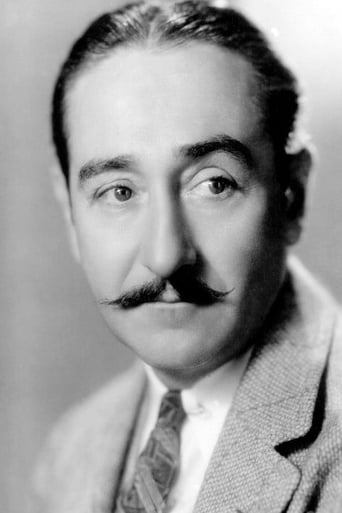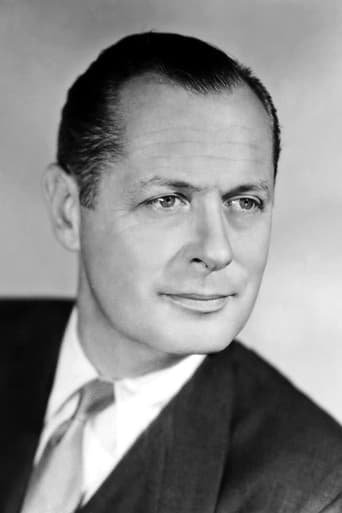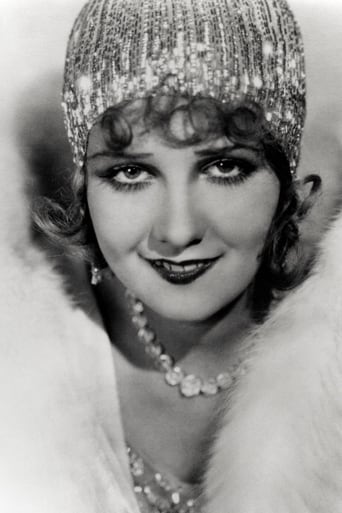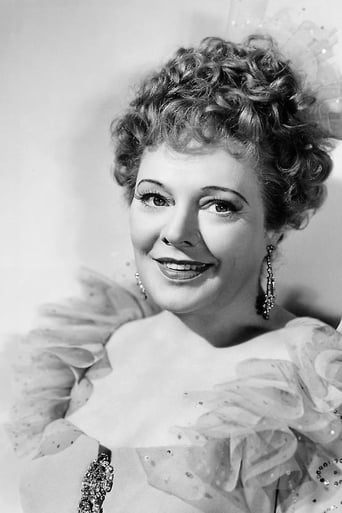Cubussoli
Very very predictable, including the post credit scene !!!
LastingAware
The greatest movie ever!
StyleSk8r
At first rather annoying in its heavy emphasis on reenactments, this movie ultimately proves fascinating, simply because the complicated, highly dramatic tale it tells still almost defies belief.
Kimball
Exactly the movie you think it is, but not the movie you want it to be.
MartinHafer
Regardless of the quality of the story, I felt I had to see "The Easiest Way" because it's one of Clark Gable's earliest films. He plays a supporting character, Nick, a guy far less sophisticated and lacking the trademark mustache. Laura (Constance Bennett) lives in a crowded apartment with her trashy family. They're poor and the father is a genial drunk. Because of this background, it's not at all surprising that when she is given a chance to become her boss' mistress, she jumps at the chance. After all, he's loaded and pampers her like she's never been pampered before! But folks who know her realize what sort of a woman she is, particularly her brother-in-law, Nick. He's wise to the trampy sort of life she leads.A bit later, when Laura is on vacation out west, she meets a nice- guy reporter, Johnny (Robert Montgomery). He's handsome, sweet and you assume they'll soon marry---and he knows what sort of woman she was. However, this is only about half-way through the film, so you know IF there's going to be a happily ever after, it will have to come after a few plot twists!This film is a great example of the so-called 'Pre-Code' and its sensibilities. Although most folks today think all the movies made back in the good 'ol days were very prudish, this was NOT the case before mid-1934. In the early 30s, studios made all sorts of very adult films with plots involving prostitutes, abortion, fornication and even, occasionally, nudity and cursing. While the films sometimes didn't always SAY that is what was going on, it was always heavily implied and the adults in the audience know the score. Here in "The Easiest Way", words like 'mistress', 'prostitute' or even that she's sleeping with the suave boss (Adolph Menjou)...but it's clearly happening! On top of that, he no-good dad doesn't mind...he LIKES the money she can send home! Welcome to the pre-code era, folks!So the important question about all this is whether or not the film is any good. If you're watching it for Gable like I was, don't expect too much from him. His role is very limited and he clearly is just a contract actor in this film. As for the film itself, its quite good. The only negative, and I actually liked this, was that the ending is very vague--so if you're looking for a perfect, formulaic sort of picture, this ain't it!
kburditt
Precode movies are always interesting because the plot lines were so cutting edge for their era and often still are for now. While the idea of a kept woman may seem quaint by today's morality, the deeper argument of men controlling a woman's life is still relevant today. A woman could/can use her beauty to gain quick and easy access to wealth. But when the beauty fades so may the access to wealth. Men controlled the jobs a woman could get, her access to society, and even her access to her own family. I was disappointed that the kept woman was so lazy about her circumstances. It took the older kept woman to wake her up to the reality of her situation. On the other hand there is the sister - who gets ahead the 'right' way. She starts out a tenement brat - and ends up a neat happy homemaker with an adorable kid & a good husband. It took time and hard work but she made the comfortable life eventually. There are other things that are worth looking at in this film - Advertising - once upon a time all print advertising was created by artists, with live models. Pencil & paint and cramping muscles. Poverty - Hot crowded tenements with thin, malnourished undereducated people. No privacy, no quiet, no prospects, no reason to play by the rules. Social Security - Once upon a time the old and tired were on their own. If they washed up at 65 with no money - and too tired and broke down to keep working - there was no safety net - just a cheap boarding house that locked you out when you missed the rent. When the prospects are dismal - who can blame a kid for taking the easy way out.
Neil Doyle
Pre-code films are always fun to watch although they do seem primitive by today's standards. But as a measure of what Hollywood was able to do despite film censorship that had to downplay the more censorable aspects of the original story, this is pretty risqué for its time.Bennett, of course, was the Joan Crawford of her era, always playing a put upon heroine in sob stories that never had too much credibility. Here she pines for Robert Montgomery (singularly lacking in the big romantic star department, even then), while her disapproving brother-in-law (Clark Gable in an early role), frowns on her unorthodox behavior as a kept woman (Adolphe Menjou is the rich sugar daddy).Enjoyable only as a relic. Bennett does a passable job, no more, her false eyelashes and peroxide blonde hair making her look a little harsh under those kleig lights. But the most natural performance, as well as the most charisma, is clearly Clark Gable's. He comes across as a handsome newcomer who steals a scene by his mere presence. He has the final Christmas scene with Bennett, and it's a touching one.He would later become the big romantic male star that Robert Montgomery failed to develop into.
Poseidon-3
The shopgirl-turned-clotheshorse concept was a staple of 1920's a 30's films, with Joan Crawford wringing quite a bit of success out of the formula. Here, Bennett gives it a go in a story that was based on a 1909 stage play. She portrays the eldest of five children living with their parents in a squalid, cramped New York tenement. The father resists working while the mother barely manages to wrangle the kids and put supper on the table. Bennett toils behind the tie counter at a department store until one day she gets the opportunity to pose as a model for advertising artists. She doesn't stop with this modest success and proceeds to hook up with the boss (Menjou), who fixes her up with a fancy apartment and all the jewels and furs she can handle. During this, she aids her family as well, though a few of them reject her for the way she earns her keep. On an extended visit to Colorado, she happens upon handsome young writer Montgomery and quickly falls for him. She decides to give up her lavish "kept" lifestyle and return to work while he is away on assignment, knowing he will be back for her to marry him. But can she take that step backwards? Bennett, one of the highest paid and most popular stars of the era presents an appealing and attractive persona (check out that waist!) She knows that what she's doing is "wrong", yet circumstances seem to prevent her from doing otherwise unless she wants to exist in poverty. Menjou is assured and manipulative in his role. Montgomery is quite fresh and likable for the better part of his screen time. Page appears to great advantage as Bennett's far earthier sister who winds up wed to Gable in one of his very earliest roles. He's handsome though his character is a little self-righteous. Rambeau makes an impression as one of Bennett's sidekicks in the modeling biz who also reaches for the top in the mistress game. Virtually all of the cast members give vivid performances. The opening sequences in the rundown apartment are quite fascinating in their snappy dialogue and depiction of the hard times. Today's audiences will be able to see through the predictable plotting, but the film still holds interest. Though the Hays Office is sometimes blamed for tampering with the material, the 1917 silent version had at least as downbeat an ending as this one does. In fact, if the story were to end any other way than it does, there'd be very little point to it all!
